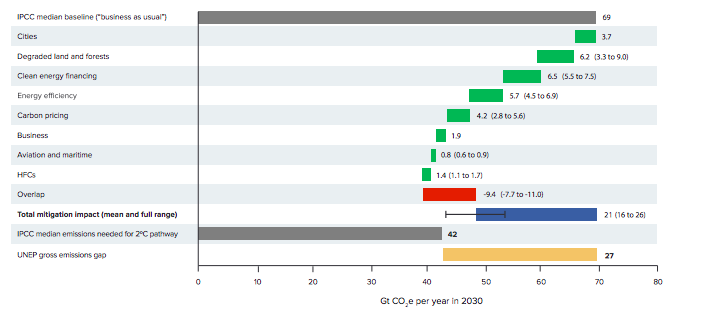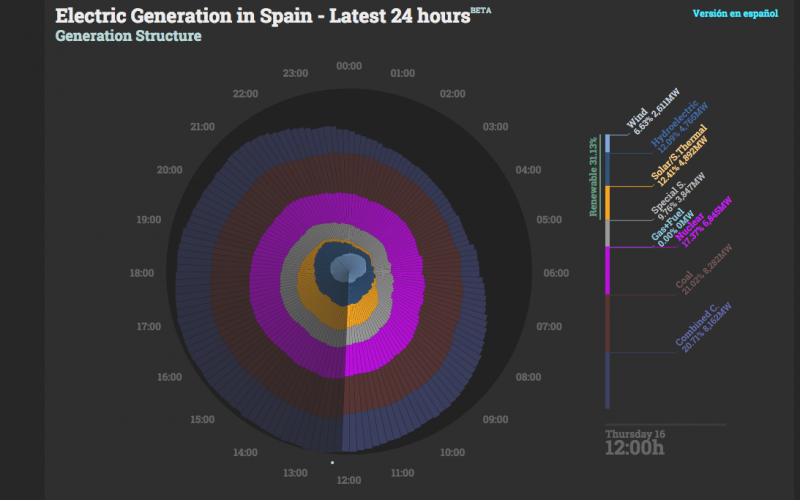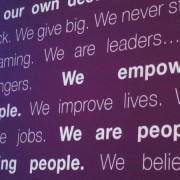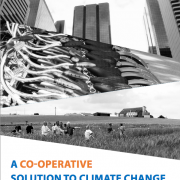Pathway to Paris #13: Concert lineup announced in advance of COP21 talks
In this Issue #13
-
Government of Quebec ups the ante
-
Green / climate bonds on the rise
-
What is the economic benefit of a low carbon society?
-
The impact of climate on the birds
-
Featured visual: Electric Generation in Spain over last 24 hours
-
Why we can’t think clearly about climate change
-
Pathway to Paris announces concert line-up for COP21
-
Featured network:International District Energy Agency (IDEA)
Government of Quebec ups the ante
Sub-national governments with a track record of leadership on climate gathered in Toronto at the Climate Summit of the Americas to share and plan future efforts. The Government of Quebec announced it will reduce emissions of greenhouse gas (GHG) from 80% to 95% by 2050 under 1990 levels.
“My feeling is that we’re seeing the beginning of the end of the fossil fuel era. It’s not going to happen tomorrow — it’s a decade-long process and it’s not going to happen because we’ll eventually run out of oil,” said Quebec Premier Philippe Couillard.
Quebec also signed the Under2MOU at the Summit, joining Washington State, California and Ontario, with the respective governors and premier on hand. The Memorandum of Understanding on Global Climate Leadership (Under 2 MOU) is an effort by 18 sub-national governments to to limit global warming below 2°C.
Green / climate bonds on the rise
A key challenge in the transition to a low/zero carbon economy is financing. Green or climate bonds are a rapidly emerging financing mechanism which are being used by the public and private sector to finance infrastructure that reduces greenhouse gas emissions. The issuance of climate bonds grew from $11 billion in 2013 to $36.6 billion in 2014 to an anticipated $70 billion in 2015, according to a new report by the Climate Bonds Initiative. Bonds have been issued in the themes of transport, energy, buildings and industry, agriculture and forestry, waste and pollution, and water.
What is the economic benefit of a low carbon society?
The Global Commission on the Economy and Climate has released a new report which identifies a series of 10 areas of opportunity that will provide at least 59% and potentially as much as 96% of the emissions reductions needed by 2030 to keep global warming under 2°C while delivering significant economic benefits.

Source: New Climate Economy, 2015. A technical note for Seizing the Global Opportunity: Partnerships for Better Growth and a Better Climate.
The first item on the list is the low carbon development of cities with the following recommendation: Multilateral development banks, donors and others should develop an integrated package of at least US$1 billion for technical assistance, capacity building and finance to support commitments by the world’s largest 500 cities. Altogether, low-carbon urban actions available today could generate a stream of savings in the period to 2050 with a current value of US$16.6 trillion, and could reduce annual GHG emissions by 3.7 Gt CO2e in 2030.
The Commission is jointly chaired by former Mexican president Felipe Calderón and Lord Nicholas Stern. Read the report for more detail.
The impact of climate on the birds
Audubon has analysed the habitats of the birds that are around us every day and the impact of climate change on their habitats. They are beautiful and compelling maps but also troubling; 314 species will lose more than 50 percent of their current climatic range by 2080. Check out Audubon’s Climate Report and the maps for birds such as the Eagle, the Loon and many others.
Featured visual: Electric Generation in Spain over last 24 hours

by Víctor San Vicente (http://www.ningunaparte.net/) cond3 (http://mbostock.github.com/d3/) , based dataREE (http://www.ree.es/es)
by Víctor San Vicente cond3, based dataREE.
33 reasons why we can’t think clearly about climate change
In a New Scientist article, environmental psychologist Robert Gifford explores why most people who understand the risk of climate change are continuing business as usual. He identifies psychological barriers which he terms the Dragons of Inaction, inspired the the Western notion of dragons as a threat to stability or an impediment to a goal or aspiration. We won’t list all thirty three, but the seven families they are grouped into include:
* Limited cognition: Humans are far less rational than once believed – which is also true when it comes to thinking about climate change.
* Social comparison: Humans are social animals; comparing our own situation to that of others is a deeply ingrained tendency.
* Sunk costs: We like to buy things that will make our lives more comfortable and predictable. Some of these purchases can be climate-positive, but many are not.
* Discredence: When people think ill of others, they are unlikely to believe what they say or take direction from them. These negative views can take a range of forms.
* Perceived risk: Changing one’s behaviour is risky. What might those who consider adopting pro-climate behaviour be risking?
* Perceived lack of behavioural control: Because climate change is a diffuse and global problem, many people do nothing because they think that their behaviour has little or no impact on the outcome. Closely related to this is fatalism – the sense that nothing can be done, not only by oneself, but even by collective human action.
Can you identify your dragons? And slay them?
Event: Pathway to Paris announces concert line-up
We are excited to announce a preliminary lineup for the final Pathway to Paris concert on December 4th 2015 in Paris. Musicians and speakers confirmed so far (others still to be announced) include:
BILL MCKIBBEN | NAOMI KLEIN | VANDANA SHIVA | PATTI SMITH | THOM YORKE | FLEA | DHANI HARRISON | TENZIN CHOEGYAL | JESSE PARIS SMITH | REBECCA FOON
SSG is a supporting organisation of the Pathway to Paris initiative, which is in benefit of and in partnership with 350.org. The event brings together musicians, artists, activists, academics, politicians and innovators to participate in a series of events and dialogues to help raise consciousness around the urgency of climate action and the importance of establishing an ambitious, global, legally binding agreement at the UN Climate Change Conference in Paris in December 2015.
Other partners include Tree Laboratory, Modo Yoga NYC and The Flux
Tickets go on sale September 2015 so watch this space!
Featured network: International District Energy Association (IDEA)
We’ve been working closely with IDEA on Plan4DE (Plan for District Energy), a project funded by the International Energy Agency to develop a tool for planners to assess district energy feasibility. We recently presented at a community energy planning workshop at their recent 2015 conference.
IDEA is a US-based non-profit organisation, founded in 1909 to facilitate the exchange of information among district energy professionals. Today, IDEA has over 1,700 members in 25 nations. IDEA represents district heating and cooling executives, managers, engineers, consultants and equipment suppliers who operate district energy systems owned by utilities, municipalities, hospitals, military bases and airports throughout North America and around the world.
The IDEA conference this year marked the launch of the United Nations Environment Program (UNEP) Global District Energy in Cities Initiative and the publication District Energy in Cities: Unlocking the potential of energy efficiency and renewable energy.
Mark Radka, Chief the UNEP Energy, Climate and Technology Branch at UNEP said“Cities are starting to realize that modern district energy can be a key element of their climate change response. A transition to modern district energy could enable cities and countries to improve their energy efficiency for heating and cooling while pursuing 100 percent renewable energy or carbon neutral targets. We must use the momentum gained at the regional launch of the Global District Energy in Cities initiative in Boston to boost ambition ahead of the Paris Climate Conference (COP21).”











